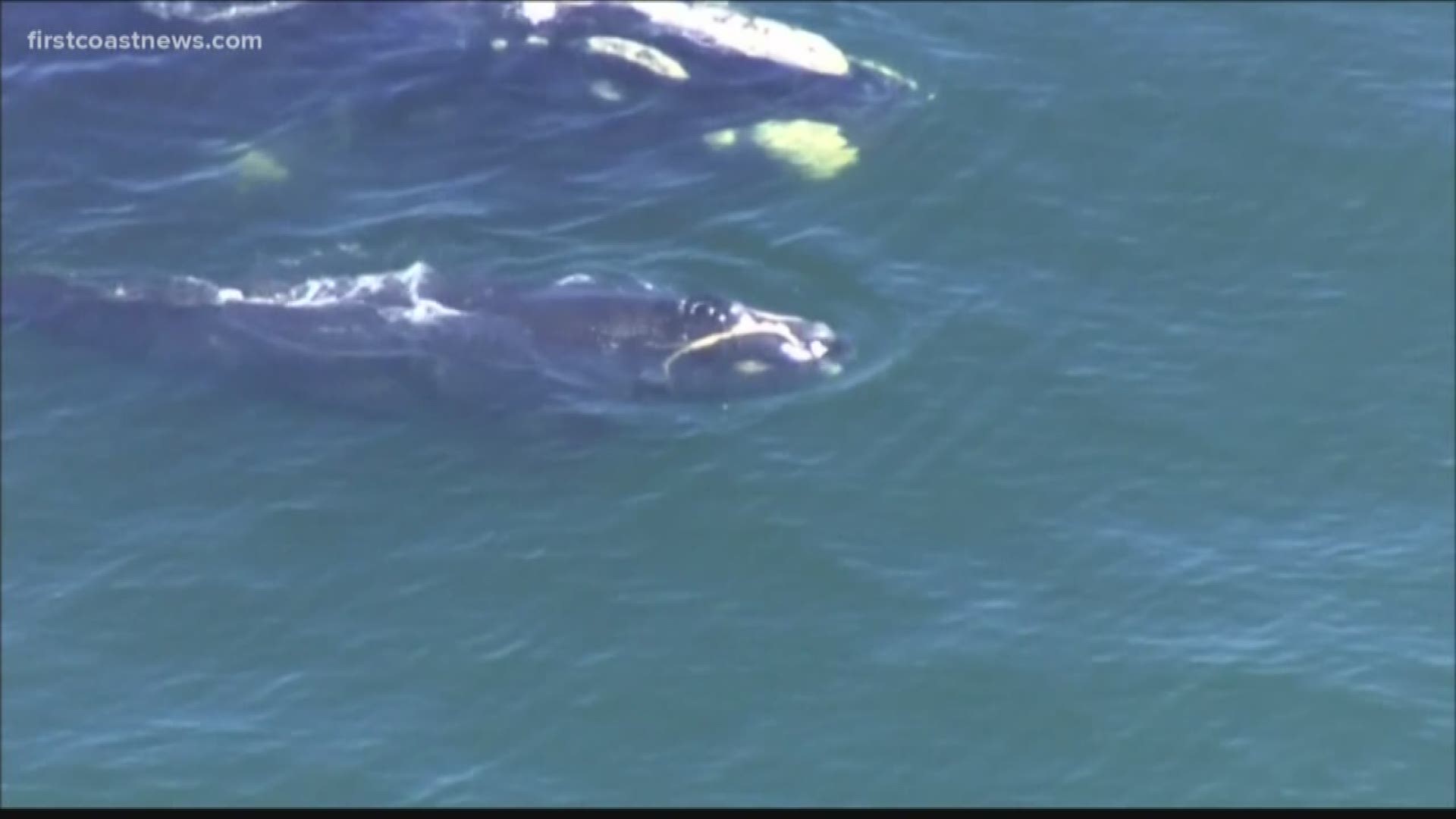JACKSONVILLE, Fla. — There is some promising news when it comes to right whales.
Several of them have been spotted along the southeastern U.S. coast earlier than usual.
Tom Pitchford is a biologist with the Florida Fish and Water Conservation Commission. He has been working with whales for 10 years.
Wednesday, he was prepping a boat in order to observe right whales off northeast Florida’s coast this week.
"Every winter we expect whales to get here," he said, "but we don’t expect them this early."
Every winter, right whales head from the northeastern U.S. to the waters off north Florida to have their babies. However, the number of babies in the last couple of years has dropped to zero.
Pitchford said, "There were more deaths than births."
However, in the last week and a half, several right whales have been spotted off of South Carolina, Georgia and Florida. Five of them are known by biologists to have had babies before, and they could be what they call potential mothers.
Pitchford said no calves have been spotted off the southeast coast this season, but the whales that have been seen could very well be pregnant.
"All of the sightings came in from the public before the official search has begun," he said.
Marine biologists usually don’t hit the water and skies searching for right whales here until Dec. 1.
So what do these early sightings mean? It’s hard to tell.
"There are too many factors to know for sure," Pitchford said. "Are the whales just really early? Did cold weather bring them down here? Or is it just that there are folks out there seeing them and know what to do?"
People who have spotted and reported these whales and their locations are helping play a role in monitoring an endangered species. There are only about 400 right whales left on earth. The biggest threats to right whales are fishing equipment entanglements and boat collisions.
Seeing five potentially pregnant whales off the southern coast is "a hopeful sign, but it just isn’t enough," Pitchford said.
It's not enough to keep a gentle giant’s population afloat for years to come.
If you see a right whale, please call the state's toll-free hotline at 877-WHALE-HELP or 1-888-97-WHALE (94253).
Also, slow your boat to avoid the whale. Do not attempt to approach the whale. Record the latitude and longitude if you can, and slowly move away from the whale to a distance of 500 yards or more.

